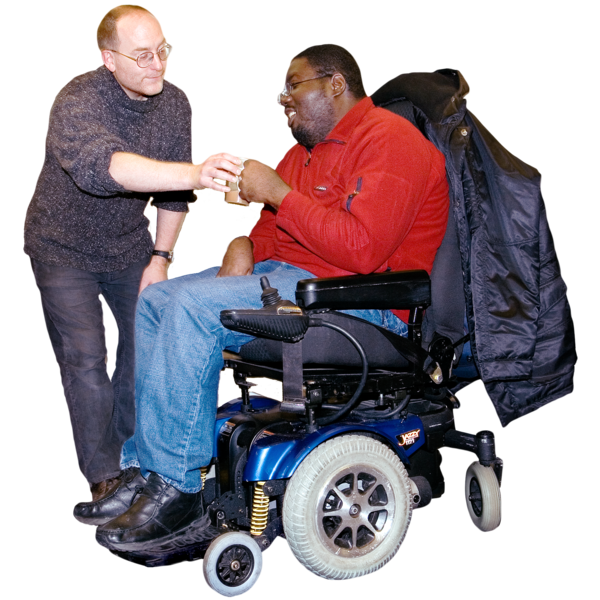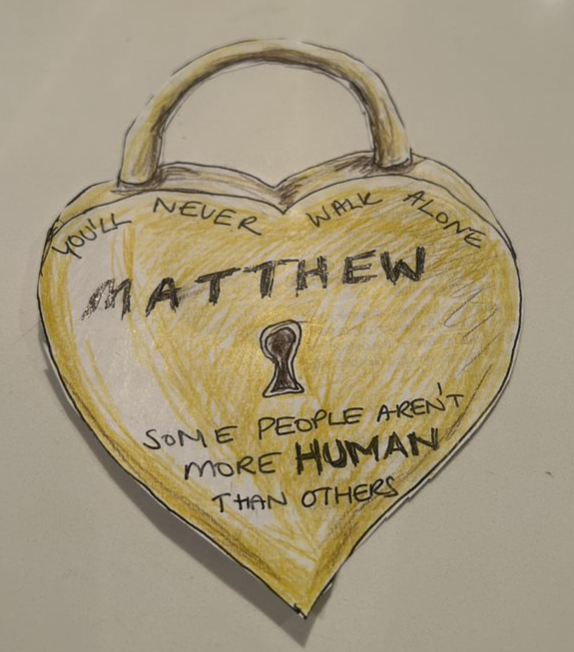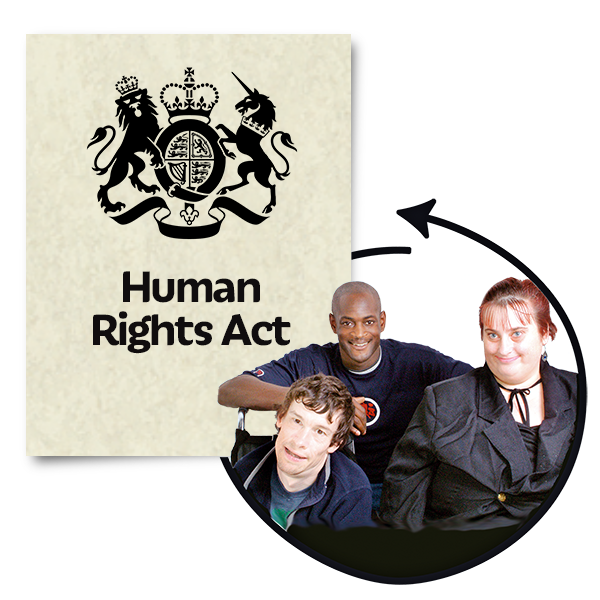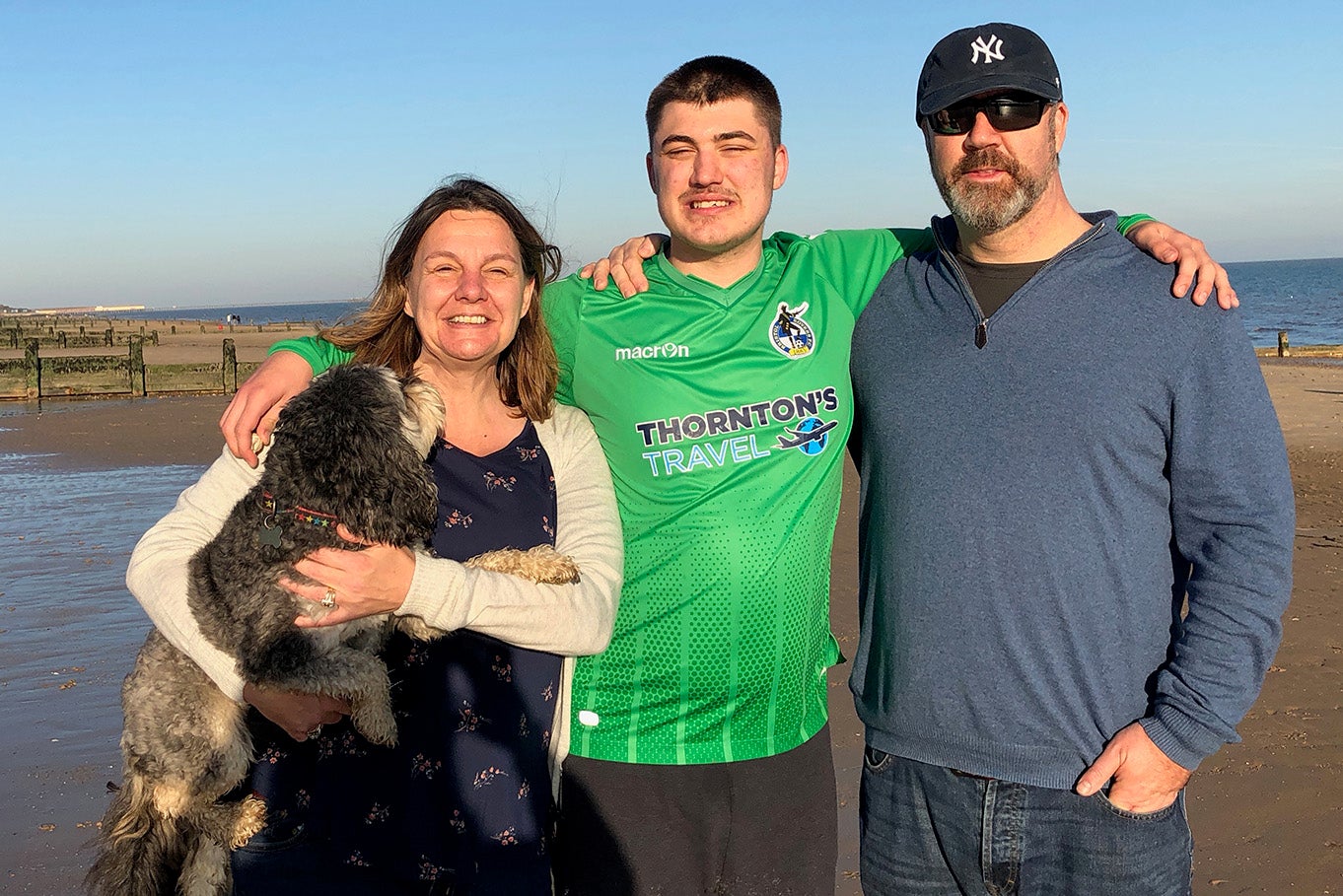Matthew’s sectioning under the Mental Health Act was predictable and preventable and that’s not just our opinion, there was a case review that said that. It said there was a failure in joint working between health,
education
 Education is when you learn things. When you fill in a form to get a job, education means you write where you went to school, college or university.
and
social care
Education is when you learn things. When you fill in a form to get a job, education means you write where you went to school, college or university.
and
social care
 Social care means the services that give care and support to people who need it.
. It also said his case is not isolated.
Social care means the services that give care and support to people who need it.
. It also said his case is not isolated.
Since then, there has also been an Independent Investigation into Matthew’s experiences in inpatient care - he suffered neglect and abuse. That was horrendous and the trauma that was caused to Matthew and us is something we’re going to live with for the rest of our lives.
Despite our best efforts while Matthew was in the unit saying things were going wrong and that we were worried about Matthew - his physical health in particular – it was really difficult to be heard. The independent investigation into Matthew’s care made many recommendations. There were so many missed opportunities.
That was seven years ago – and these issues are still happening now. Through my work as a Care, Education and Treatment Review (CETR) expert by experience, I see that other families, autistic people and people with a
learning disability
 A learning disability is to do with the way someone's brain works. It makes it harder for someone to learn, understand or do things.
are going through the same as Matthew and we did, and sometimes worse.
A learning disability is to do with the way someone's brain works. It makes it harder for someone to learn, understand or do things.
are going through the same as Matthew and we did, and sometimes worse.

Matthew was discharged and he was doing really well, with a great care provider and living his best life, doing meaningful things, with the right support. But then Covid hit and he developed a trauma response: a condition called ‘autistic catatonia’. We had to fight to get a diagnosis and to get the 2:1 support for him at night, because he is now completely nocturnal. There was delay after delay. He had to wait two years to see a psychologist as there was no psychologist in post and I think that is why the autistic catatonia has become entrenched.
Our family has been traumatised by Matthew’s experiences – my husband, daughter, me and most importantly Matthew. Since Matthew developed autistic catatonia, we have had to fight for the right support for him, again. It never stops.
Ten years ago, Sir Stephen Bubb said that what is needed in order to transform care for people with a learning disability and autistic people is the right
community
 A community is the people and places in an area.
support, upfront ring-fenced funding for the right support in the community. All these years later and we are still way off – no psychologists in post, no speech and language therapists… it’s a national problem. I’m seeing it not just for Matthew but in the CETRs I do.
A community is the people and places in an area.
support, upfront ring-fenced funding for the right support in the community. All these years later and we are still way off – no psychologists in post, no speech and language therapists… it’s a national problem. I’m seeing it not just for Matthew but in the CETRs I do.
There is a crisis in the workforce. Social care is on its knees. There is a huge recruitment problem. It’s not just failures in the system, the system is beyond broken. The system is completely geared to crisis. It doesn’t respond until people are in crisis then it responds with a sledgehammer: overmedication, restraint, seclusion,
human rights
 Human
rights
Human
rights
 Rights are the things everyone should be allowed to do like have a say, or go to school.
are the rights that everyone has. These include the right to go to school and the right to start a family.
abuses.
Rights are the things everyone should be allowed to do like have a say, or go to school.
are the rights that everyone has. These include the right to go to school and the right to start a family.
abuses.
The imperative is to save money. All services need to save money and local authorities don’t want to pay for the social care needed. If people end up in a unit, then health pays the cost. But Matthew’s care in the community is a fraction of what it cost when he was in an inpatient unit. All that money goes on funding one person to be in a unit when it could go on developing community support and benefit more people.
All
the Government
 The Government are the people who run the country. The Government decide how much tax people should pay and how things like the National Health Service (NHS) should work.
’s discussions about social care are to do with older people but Matthew is 22 years old. There are a lot of people like Matthew who are working age and need support. He has the right to have a good life, a normal life, like everyone else. Society is a group, everybody matters. Matthew’s life matters just as much as everyone else’s.
The Government are the people who run the country. The Government decide how much tax people should pay and how things like the National Health Service (NHS) should work.
’s discussions about social care are to do with older people but Matthew is 22 years old. There are a lot of people like Matthew who are working age and need support. He has the right to have a good life, a normal life, like everyone else. Society is a group, everybody matters. Matthew’s life matters just as much as everyone else’s.

Matthew has now had some psychology support and is being discharged because there are others who need this psychologist’s support – not because he is better. We urgently need adequate funding for health and social care support in the community.
It’s not rocket science. It is as simple as investing in community services. We urgently need an adequately paid workforce so that staff are valued and supported to do a job that is very skilled. Adequate pay and conditions so that they can be resilient and receive the ‘right’ training, and so the ‘right’ people (e.g. people with empathy and a sense of humour) are attracted to the role.
All the things that have been achieved for Matthew have been through us advocating for him and yet we’re treated by the system as a ‘difficult family’. All this is traumatising. Instead of helping, the system traumatises families – when what is best for the person is for everyone to work together.

 By Mencap
By Mencap